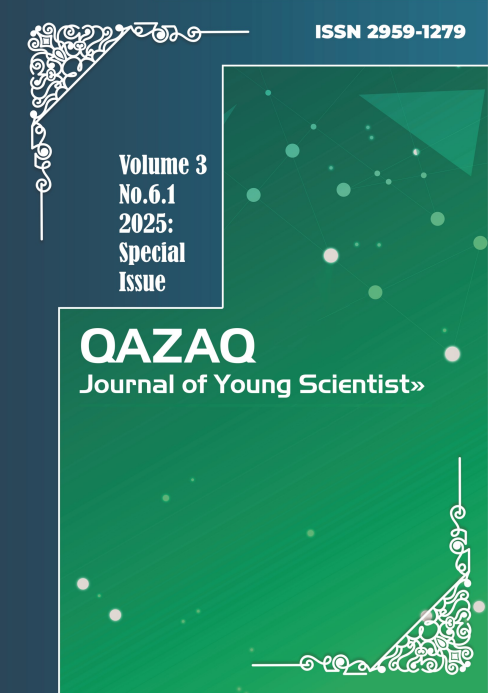ПРОБЛЕМАҒА НЕГІЗДЕЛГЕН ОҚЫТУ: ЗАМАНАУИ БІЛІМ БЕРУ ТЕОРИЯСЫНЫҢ ЖАҢА ПАРАДИГМАСЫ
Main Article Content
Аңдатпа
Бұл мақалада проблемаға негізделген оқыту (PBL) әдістемесінің мәні, мазмұны, құрылымы және кезеңдері қарастырылды. PBL – оқушылардың белсенді танымдық әрекетіне негізделген, нақты өмірлік проблемаларды шешу арқылы білім мен дағдыларды меңгеруге бағытталған заманауи оқыту моделі. Мақалада PBL-дың құрылымдық кезеңдері – проблемалық жағдаят құру, зерттеу және топтық жұмыс, шешім қабылдау және рефлексия – сипатталды. Әлемдік білім беру тәжірибесі аясында PBL әдістемесінің ерекшеліктері мен тиімділіктері қарастырылып, олардың еліміздің білім жүйесіне енгізу мүмкіндіктері ұсынылды. Бұл мақала проблемаға негізделген оқытудың математикалық сауаттылықты арттырудағы маңыздылығын, оқушылардың білімді терең әрі саналы меңгеруіне ықпал ететінін көрсетеді.
Article Details
##submission.citations##
Barrows, H. (1986). Problem-Based Learning in Medical Education. Moscow: Medicina. – 214 p.
Kolesnikova, I. A. (2017). Psychological and Pedagogical Conditions for the Formation of Functional Literacy. Vestnik of Orenburg State University, No. 7(205), pp. 68–73.
Kasenov, Zh. (2019). Theory and Practice of Competence-Based Learning. Almaty: Kazakh University. – 216 p.
Savery, J. R. (2006). Overview of Problem-Based Learning: Definitions and Distinctions [Electronic resource]. Interdisciplinary Journal of Problem-Based Learning, Vol. 1, No. 1, pp. 9–20.
Walker, T. (2018). The Finnish Education System: How the Best Schools in the World Work / Transl. from English. Moscow: Alpina Publisher. – 256 p.
Sahlberg, P. (2014). Finnish Lessons: What Can the World Learn from Educational Change in Finland? / Transl. from English. Moscow: Novoye Izdatelstvo. – 256 p.
Lavonen, J., & Laaksonen, S. (2009). Contextual Factors Behind Finnish Students’ High Achievement in Science. International Journal of Science Education, 31(5), pp. 615–627.
OECD. (2019). PISA 2018 Results (Volume I): What Students Know and Can Do. OECD Publishing.
Tan, O. S., Chia, L. S., & Teo, C. T. (2006). Problem-Based Learning Innovation: Using Problems to Power Learning in the 21st Century. Cengage Learning.
Kho, T. H., & Tan, C. (2015). Educational Policy Borrowing in Singapore: Looking West or Looking East? Compare: A Journal of Comparative and International Education, 45(3), pp. 353–372.
Ryan, R. M., & Deci, E. L. (2000). Intrinsic and Extrinsic Motivations: Classic Definitions and New Directions. Contemporary Educational Psychology, Vol. 25, No. 1, pp. 54–67.
Barrett, T., & Moore, S. (2011). New Approaches to Problem-Based Learning: Revitalising Your Practice in Higher Education. Routledge.
Friesen, S., & Scott, D. (2013). Inquiry-Based Learning: A Review of the Research Literature. Galileo Educational Network.
